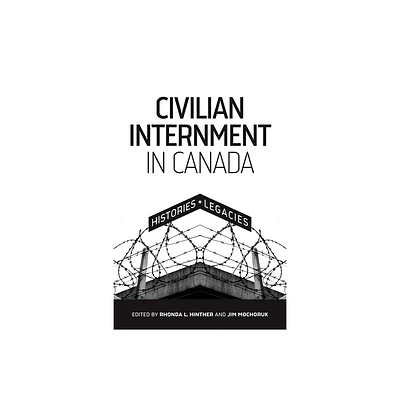Home
Profits, Security, and Human Rights in Developing Countries: Global Lessons from Canada's Extractive Sector in Colombia / Edition 1
Loading Inventory...
Barnes and Noble
Profits, Security, and Human Rights in Developing Countries: Global Lessons from Canada's Extractive Sector in Colombia / Edition 1
Current price: $190.00


Barnes and Noble
Profits, Security, and Human Rights in Developing Countries: Global Lessons from Canada's Extractive Sector in Colombia / Edition 1
Current price: $190.00
Loading Inventory...
Size: OS
*Product Information may vary - to confirm product availability, pricing, and additional information please contact Barnes and Noble
The extractive sector is a particular area of expertise for Canada and more than half of Canada’s mining assets abroad are located in Latin America, specifically in Brazil, Peru, Chile, and Colombia. The Canada-Colombia accord was the first free-trade agreement in the world to include annual Human Rights Impact Assessments (HRIA), and also includes a labour side accord where abuse complaints can be formally registered. Using Colombia as a case study, James Rochlin and his international and multidisciplinary line up of Canadian and Colombian scholars, and activists working in the area of human rights, and the judiciary explore:
What is the best way to identify and operationalize for mutual benefit the concentric space between the interests of extractive corporations in profit and security, on the one hand, and the interests of the host communities in the promotion of human rights and human security, on the other?
What can the four emblematic and diverse cases in Colombia (Meta, Sergovia, Marmato, and Bolivar/La Guajira) tell us about how to fine tune and improve a newly implemented governmental HRIA to render it an increasingly useful global instrument to promote simultaneously corporate security and human security for host communities?
What is the most efficient and effective way to design and implement Corporate Social Responsibility Programs in a manner that promotes simultaneously corporate security and community human security?
Written in a clear and accessible style,
Profits, Security, and Human Rights
presents practical lessons on how to promote both corporate security and human security in communities where the extractive sector operates in the Global South.
What is the best way to identify and operationalize for mutual benefit the concentric space between the interests of extractive corporations in profit and security, on the one hand, and the interests of the host communities in the promotion of human rights and human security, on the other?
What can the four emblematic and diverse cases in Colombia (Meta, Sergovia, Marmato, and Bolivar/La Guajira) tell us about how to fine tune and improve a newly implemented governmental HRIA to render it an increasingly useful global instrument to promote simultaneously corporate security and human security for host communities?
What is the most efficient and effective way to design and implement Corporate Social Responsibility Programs in a manner that promotes simultaneously corporate security and community human security?
Written in a clear and accessible style,
Profits, Security, and Human Rights
presents practical lessons on how to promote both corporate security and human security in communities where the extractive sector operates in the Global South.


![Human Rights, Security, and State Security [3 volumes]: The Intersection](https://prodimage.images-bn.com/pimages/9780313397608_p0_v2_s600x595.jpg)















